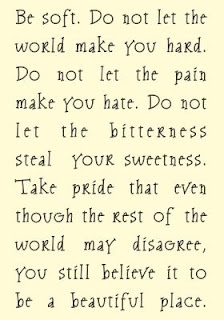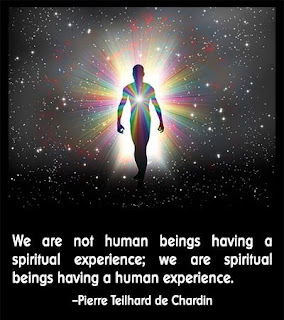The Role of Islamic Law in Tunisia’s Constitution and Legislation Post-Arab Spring [source: Library of Congress]Concerning the role of Islamic law in the new Tunisian Constitution, it is important to note that the word “Islam” is mentioned four times in the April 2013 draft: one time in the preamble and three times in the body of the Constitution itself, in articles 1, 72, and 136.The influence of religion on society has become more prominent under the current Tunisian administration than it was under the regime of ousted President Zine El Abidine Ben Ali. Throughout the Ben Ali era, the ruling party, known as the Constitution Democratic Rally, tried to curb any religious influence on Tunisian society by prohibiting the formation of any religion based political parties. However, following the revolution of early 2011, more room was created for religious political parties to operate in the country. In fact, the role of the religious parties was enhanced after al-Nahda’s win in the elections for the Constituent Assembly in October 2011.After winning 41% of the seats in the Constituent Assembly, representatives of al-Nahda proposed a constitutional provision declaring Islam to be “the main source of legislation” with the goal of unifying all Tunisian legislation under the rule of Islamic law.Al-Nahda representatives have also asserted on many occasions that Tunisian legislation and international treaties approved by the Parliament should be in conformity with Islamic law standards. For instance, some of the al-Nahda members in the Constituent Assembly rejected a proposed initiative to abolish the death penalty on the grounds that such an initiative would violate Islamic law. They also offered a bill that would criminalize eating in public during the Islamic holy month of Ramadan and abolish Law 27 of 1958, which allows for the adoption of a child, since al-Nahda leaders consider adoption of a child to be forbidden under Islamic law.On the other hand, secular political parties operating within the Constituent Assembly, including the Congress Party for the Republic and Ettakatol, opposed al-Nahda’s attempts to incorporate additional references to Islamic law in the Constitution. Representatives of these parties announced that al-Nahda’s proposed constitutional provision emphasizing Islam as the main source of legislation was unacceptable because al-Nahda did not identify which interpretation of Islamic law Tunisians should follow.During 2012 it was reported that the al-Nahda Islamic party agreed that there is no need to insert a special provision declaring Islam the main source of legislation because article 1 of the old Constitution of 1959 already mentions that “Islam is the religion of Tunisia.” After months of debate and negotiations, on March 26, 2012, al-Nahda announced that it would no longer press for the inclusion of this provision. Most of the secular and religious political parties agreed to keep article 1 of the old Constitution, which explicitly states that “Tunisia is a free, sovereign and independent state, whose religion is Islam.”In addition to article 1, Islam is referenced in article 72 of the April 2013 draft Constitution, which states that any presidential candidate must be a Muslim. Religion is also mentioned in article 136, which provides that no constitutional amendment shall harm Islam as the religion of the State.
The Times of India
written by AFP staff
Friday March 13, 2015
TUNIS: Tunisian authorities arrested a popular comedian and a television show host on Friday for having "offended" president Beji Caid Essebsi, the prosecutor's office said.
"The prosecutor has decided to place in detention" satirist Migalo, whose real name is Wassim Lahrissi, and television host Moez Ben Gharbia for having "offended the president", prosecution spokesman Sofiene Sliti said.
He declined to give further details on the alleged offence, but alleged that the pair had also committed "fraud" and said they will remain behind bars until they appear in court on March 25.
The arrests came after Essebsi won Tunisia's first free presidential election in December, capping off the transition to democracy in the birthplace of the Arab Spring.
Tunisia adopted a new constitution last year that guarantees the right to freedom of conscience and expression.
"We will not enter into the details of the case," so as not to undermine the investigation, Sliti said.
Private radio station Mosaique FM, where Migalo works as a comedian and impersonator, said that he had recently pretended to be the Tunisian president in a telephone call he made to a businessman.
According to the broadcaster, the businessman, whom they did not name, had recently asked Ben Gharbia to intercede on his behalf with the president but did not say what it was about.
Ben Gharbia was a former star host with private television Ettounsiya who has been planning to launch his own television channel.
There was no immediate comment from the office of the president, who has pledged to respect freedom of expression, which has been one of the main gains of the 2011 revolt that ousted veteran strongman Zine El Abidine Ben Ali.
The arrests came days after a Tunisian military appeals court jailed blogger Yassine Ayari for six months for defaming the army, despite criticism from rights groups.
Ayari has alleged that he is being punished for blogs he wrote while out of the country that were critical of Essebsi's anti-Islamist Nidaa Tounes party.
Human Rights Watch has called on Tunisia's parliament to reform laws that lead to imprisonment for defaming or insulting state institutions, and to end the jurisdiction of military courts over civilians.
Tunisia Live Newswritten by Megan RadfordOctober 13, 2012According to Constituent Assembly members, a controversial article has been moved from the section on rights and liberties to the preamble of Tunisia’s draft constitution. Nicknamed “the blasphemy law,†the article was proposed by ruling political party Ennahdha and prohibits “insults, profanity, derision, and representation of God and Mohammed.â€It was originally reported by AFP that any offense to the sacred would be taken out of the Constitution. Mustapha Ben Jaafar, the head of the National Constituent Assembly (NCA), told the news agency that it was too difficult to define what was sacred, and therefore, they could not criminalize that kind of offense.Brahim Hamdi, an independent member of the NCA said, “The only word that was taken out was ‘criminalization’.â€Salma Bakkar, a member for the Democratic Bloc, confirmed this, saying that the article was moved to the “general principles†portion of the constitution’s preamble.Hamdi commented that the sacred parts of Islam are very important to the Tunisian people. “Blasphemy fires people up in Tunisian society.†However, Hamdi said that instead of being included in the general principles, it should be made a law.“When there is a law that protects the sacred, no one will ever breach those laws and no one will ever commit blasphemy,†he claimed.When asked how “the sacred†should be defined, he said, “Sacred things are God, the Prophet and the Koran.†The sacred people and things of other religions also fall under this article, Hamdi said.Many civil society groups in Tunisia have spoken out against the proposed article, saying that it violates the right to freedom of speech.
Naharet News
written by Staff
Monday March 16, 2015
The Tunisian prosecution on Monday refused to release a popular comedian and a television host detained for allegedly offending the president, a spokesman said.
Sofiene Sliti said the court turned down a request by the lawyers of satirist Migalo, whose real name is Wassim Lahrisi, and television host Moez Ben Gharbia for their release.
The pair were arrested on Friday, along with an assistant, and detained pending a court hearing on March 25 for having "committed an offense against the head of state."
Ben Gharbia is accused of having asked Migalo to use his impersonation skills to imitate the president during a telephone conversation with a prominent businessman.
Their lawyer, Fethi Mouldi, said his clients were "journalists who were investigating a corruption" case, and argued in vain with the court to release Ben Gharbia, Migalo and their unnamed assistant.
He also expected the trio to be acquitted of any wrongdoing, saying "there is no plaintiff, no victim and not one penny has been given or taken."
Mouldi also said President Beji Caid Essebsi had nothing to do with the case. "He is not a victim nor a plaintiff," he said.
On Friday Essebsi's office had promptly denied involvement in the case, saying "freedom of the press and expression are acquisitions the president... is committed to defending, he being its principal guarantor."
Essebsi, 88, won Tunisia's first free presidential election in December, capping off the transition to democracy in the birthplace of the Arab Spring.
As part of that transition, Tunisia adopted a new constitution last year that guarantees the right to freedom of conscience and expression.
An offense against the president is punishable by three years in prison, misrepresentation of identities by two years and fraud by five years.





































No comments:
Post a Comment